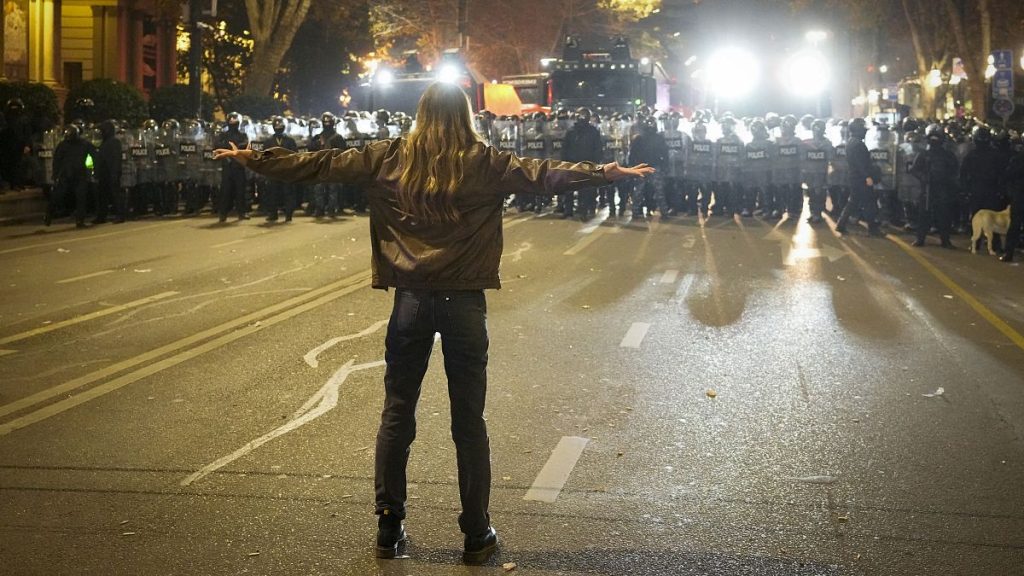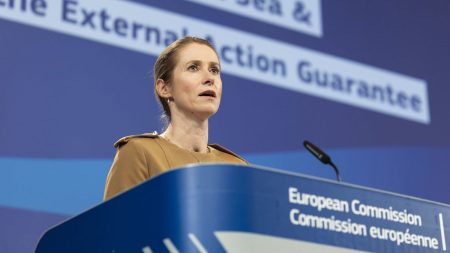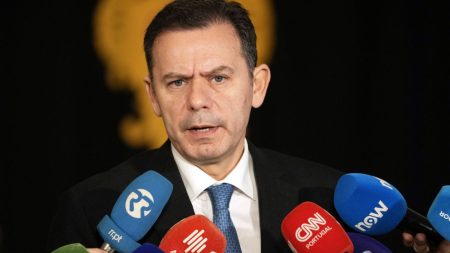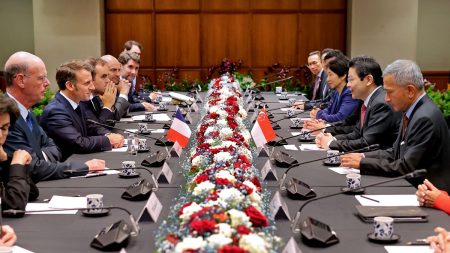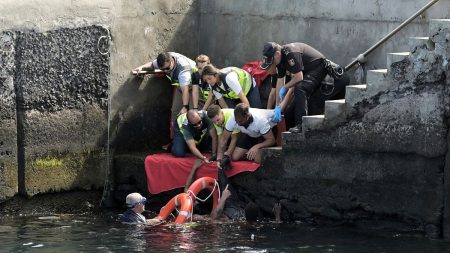The Unrest in Georgia: A Clash of Democratic Aspirations and Authoritarian Tendencies
The Republic of Georgia, a small nation nestled in the Caucasus region, finds itself at a critical juncture, grappling with a profound internal conflict that pits its aspirations for closer ties with Europe against a backdrop of rising authoritarianism and alleged Russian influence. Recent protests, sparked by disputed parliamentary elections and a controversial decision to postpone EU accession talks, have brought these tensions to the forefront, exposing deep societal divisions and raising concerns about the country’s democratic trajectory. The international community, particularly European nations like Germany, France, and Poland, has voiced strong condemnation of the Georgian government’s response to the demonstrations, characterizing the use of force as disproportionate and urging respect for fundamental freedoms.
The protests, now entering their tenth night, were initially triggered by the October 26 parliamentary elections, in which the ruling Georgian Dream party retained control amidst accusations of vote rigging and Russian interference. The opposition, alleging a concerted effort to maintain the "Moscow-friendly" party’s grip on power, took to the streets to express their discontent. However, the demonstrations escalated dramatically following the Georgian Dream’s subsequent decision to suspend EU accession talks until at least 2028. This move, ostensibly in response to a critical European Parliament resolution that deemed the elections neither free nor fair, further inflamed public anger and broadened the scope of the protests beyond the capital, Tbilisi.
The European Parliament’s resolution highlighted what it described as Georgia’s ongoing democratic backsliding, attributing responsibility squarely to the ruling Georgian Dream party. International observers reported instances of violence, bribery, and double voting during the elections, leading some EU lawmakers to call for a re-run. The EU had granted Georgia candidate status in December 2023, contingent upon meeting specific recommendations, but this process was already on hold due to the passage of a contentious "foreign influence" law, perceived as a setback for democratic freedoms.
Adding to the complex political landscape is the growing perception of the Georgian Dream party’s increasingly authoritarian tendencies and perceived alignment with Moscow. The party’s recent enactment of laws mirroring those used by the Kremlin to suppress freedom of speech and LGBTQ+ rights has amplified these concerns. This perceived shift towards authoritarianism has further fueled the protests, as demonstrators view the government’s actions as a betrayal of the country’s European aspirations and a move towards greater Russian influence.
The international community’s response to the unfolding crisis has been swift and critical. The foreign ministers of Germany, France, and Poland issued a joint statement condemning the "disproportionate use of force" against protesters and demanding the immediate release of detained opposition members and journalists. They emphasized the importance of upholding fundamental rights, including freedom of peaceful assembly and expression, in accordance with Georgia’s constitution and international commitments. The ministers also urged the Georgian Dream party to de-escalate tensions and engage in inclusive dialogue with all political factions and civil society representatives, reaffirming their commitment to supporting the Georgian people’s democratic and European aspirations.
The United States has also voiced its condemnation of the Georgian government’s actions. Secretary of State Antony Blinken, speaking at a ministerial conference of the Organisation for Security and Cooperation in Europe, denounced the "brutal repression" of those advocating for closer ties with Europe. This transatlantic condemnation underscores the international community’s growing concern over the situation in Georgia and the perceived erosion of democratic principles. The protests highlight a critical moment in Georgia’s history, where the pursuit of European integration clashes with internal political dynamics and alleged external influences. The international community’s response will be crucial in shaping the country’s future trajectory and its ability to uphold its democratic values.
Georgia’s pro-EU president, Salome Zourabichvili, has emerged as a prominent voice of dissent against the Georgian Dream party’s policies. Her refusal to sign controversial legislation into law reflects her commitment to safeguarding democratic principles and upholding Georgia’s European aspirations. Her recent meeting with Ukrainian President Volodymyr Zelenskyy in Paris further underscored this commitment, as she expressed gratitude for Ukraine’s unwavering support and reiterated Georgia’s unwavering pursuit of EU membership. Zelenskyy, in turn, voiced his support for Georgia’s struggle for a "dignified future" and pledged to coordinate with international partners to provide assistance to the Georgian people in their fight for freedom and independence. This display of solidarity between the two leaders highlights the shared challenges faced by countries in the region striving to maintain their sovereignty and democratic values in the face of external pressures.
The ongoing protests in Georgia represent a pivotal moment in the country’s history, exposing a deep-seated struggle between democratic aspirations and authoritarian tendencies. The international community’s condemnation of the government’s response underscores the importance of upholding fundamental freedoms and engaging in constructive dialogue to address the underlying political and societal divisions. The outcome of this crisis will have significant implications for Georgia’s future trajectory and its relationship with both Europe and Russia. It remains to be seen whether the Georgian Dream party will heed the calls for de-escalation and engage in meaningful dialogue, or whether the country will continue down a path of increasing authoritarianism and further alienation from its European aspirations. The voices of the protesters, echoing the desire for a democratic and European future, remain a powerful force in shaping the narrative of this unfolding crisis.




